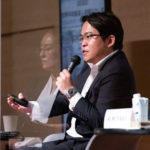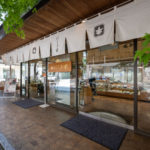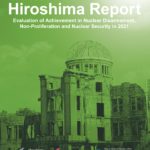[Interview] On How to Face the Weaponization of the Economy (Energy, Food, etc.)
[Oisix Ra Daichi]
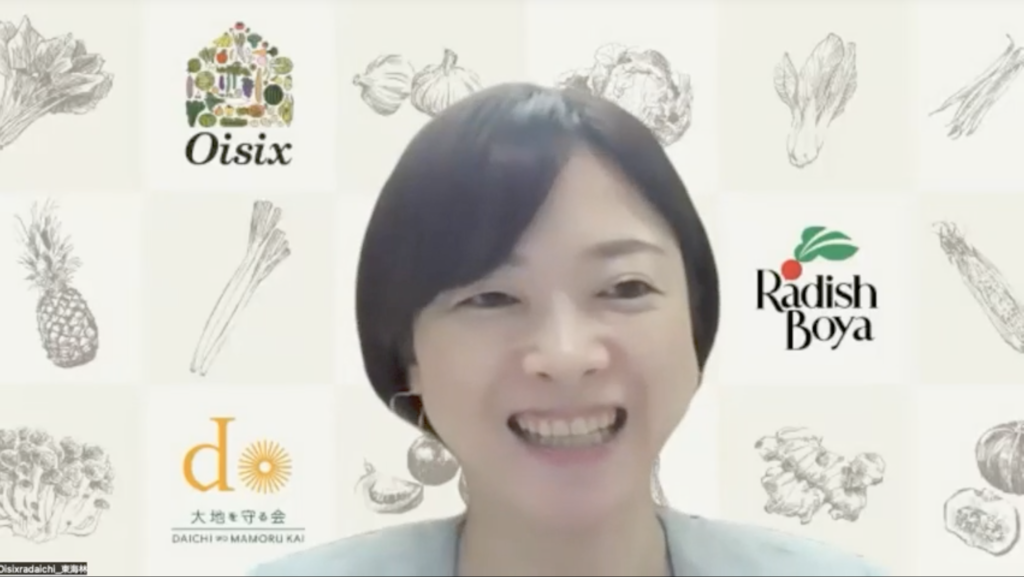
Hiroshima Business Forum for Global Peace is where people debate on the relationship between business and peace-building. The 8th forum, held in April 2023, was held on the topic of “International society/economy and contribution of business to peace in wake of invasion of Ukraine.” In this forum, we heard from speaker TOKAIRIN Sonoko of Oisix Ra Daichi’s Green Strategy Room in session 2 on the state of the food-supply crisis accompanying the invasion of Ukraine and the peace-building of businesses.
Facts About Business
Our company was founded in 2000 as an enterprise to develop the e-commerce-based food delivery “Oisix.” In 2017 we merged with “Daichi wo Mamoru Kai,” which similarly is a food delivery company, and in 2018 with “Radish Boya.” We conduct business in the domain of food under the name Oisix La Daichi domestically as well as in Hong Kong and Shanghai.
With “food from here on, fields from here on” as our company’s foundational principle, our mission is to solve the problem of food with our business methods, and we aim to be a sustainable retail business. Since the time of our founding, we have only sold food whose makers would be comfortable having their children eat. We, for example, inspect all our items for radioactive material, bringing you foodstuff that satisfies our independent safety standards. Currently, we do not only deliver to individual customers but to nurseries, etc. as well; Oisix is a brand whose main force is our membership numbers, which is 401,000 people, and around 510,000 people for all three brands combined (as of March 2023).
All three brands were originally founded with the intent of being sustainable businesses that paid attention to the environment and the manufacturers, but since we have been grappling with sustainable initiatives as a matter of course up until now, we didn’t actively call attention to that fact. We think that by conveying our sustainable initiatives to consumers, their actions will change and society will change, and so we intend to put effort into conveying this from now on.
Also, we intend to aim to be a sustainable retail business, involving other companies beyond our own to actively grapple with reducing food waste, plastic and CO2 production with the next generation. Within our group we have also started the corporate venture capital “Future Food Fund,” and are active in supporting up-and-coming food tech businesses.
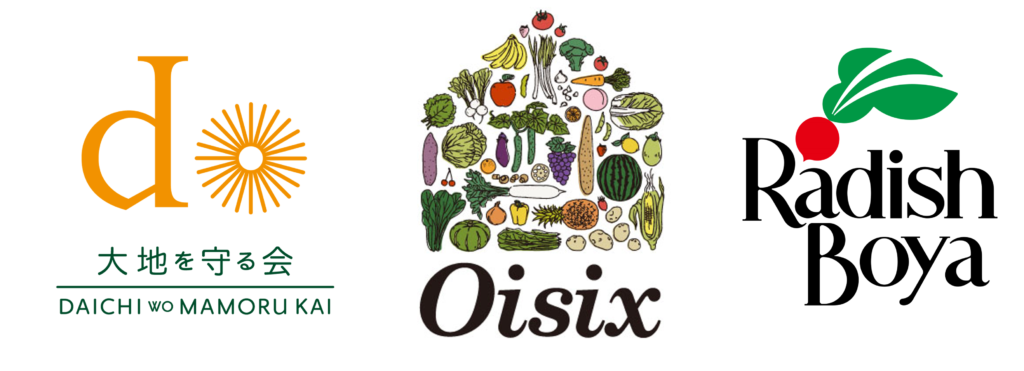
The three main domestic brands
The Influence of the Food-Supply Crisis Due to the Invasion of Ukraine on Japanese Society and Our Countermeasures
Due to Russia’s invasion of Ukraine, we saw a sharp increase in price in fertilizers, raw materials, and fuel, increasing the production costs for manufacturers of making agriculture produce and marine products, and lowering their profit ratio. The steep price increase for groceries continues for consumers, creating the problem where foodstuff exists but is costly. Our company is grappling with grassroots actions to combat this food-supply crisis.
According to the Ministry of Agriculture, Forestry and Fisheries, 5.23 million tons of food waste are produced in Japan each year. The 5.23 million tons are once-circulated food products that have been disposed of; since the portion scrapped in producing areas isn’t counted, the actual amount of food waste is even greater. On the other hand, people are starving in countries struggling due to the food-supply crisis.
To contribute even a little to solving this problem, we started “Upcycle by Oisix” at our company, in which we add value to things that have until now been thrown away, and develop and sell upgraded products.
For example, in recent years in Sanriku, a phenomenon occurred in which holes opened in the surface of wakame, their local product, increasing the amount of wakame that couldn’t be made into conventional products like salt-preserved wakame. Because of this, they’d cut off the whole thing in Sanriku, with the amount of wakame disposed of reaching about 50 percent of the total. Our company heard about the problem from the manufacturers, and sold the non-standard wakame as an upcycled snack at “Upcycle by Oisix.” We are putting all the more effort into developing products that reduce the waste of wakame and kombu such as in soups, broths, somen, etc. that we are already selling.
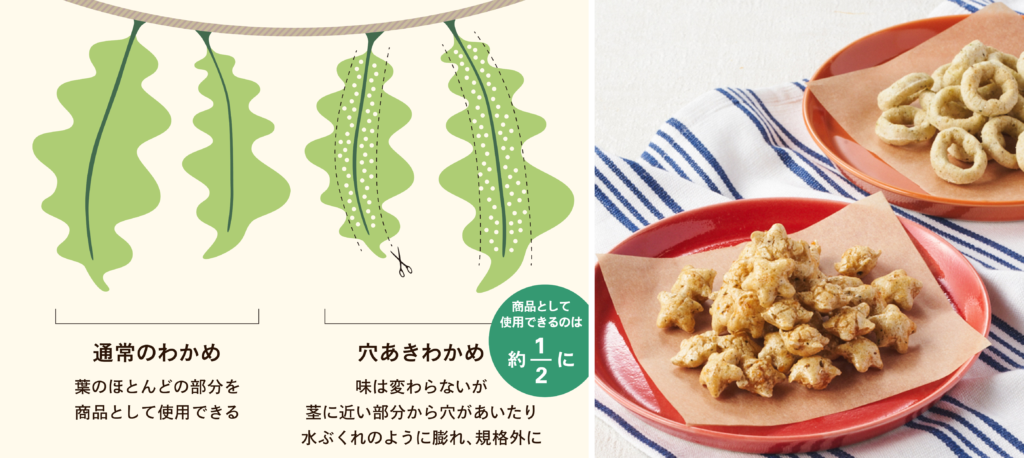
Genmai snacks made from domestic wakame with holes in them.
Furthermore, in order to carry out large-scale sustainable actions that can’t be realized by one company alone, we would like to improve in cooperative industry among businesses.
As an example, we began cooperating with Umeshu no CHOYA in 2022. We process the Ume fruits used in umeshu production, which we get from CHOYA’s ume producers, and are selling them as dried fruit. CHOYA is particular about its ume plums, and is a maker that treasures its producers, so when we asked if they would like to breathe new life into ume fruits that have been discarded, they happily complied. This links to the creation of industry for the people who work as manufacturers, and since a great deal of dried fruit is exported abroad, this contributes to the increase of domestic self-sustainability since the supply is domestic. Making the ume into dried fruit is a new way of eating them that didn’t even exist in the producing areas, but it is being received incredibly well by consumers for its taste, of course, but also from a health-conscious perspective.
There are also many big corporations that deal with the issue of food waste. We think that by taking action together, we’ll be able to solve the problem even a little bit sooner.
Efforts to Contribute to Society, Including Sustainable Development Goals
Because our company implements a membership system subscription model, the food waste for distribution is approximately 0.2%, an overwhelmingly low level for food retail. For food retail businesses like ours, the strong point is being able to take action that involves consumers. We think that even if our consumers aren’t conscious of sustainability, it’s important to make a system where their enjoyment of the food is tied to nature and sustainability. Taste-wise, we keep a close eye on feedback from our customers, pursuing the flavors that customers want, while pouring our effort into making our food take as little effort as possible on the customer’s part to prepare. In addition, by closely coordinating with manufacturers to ensure that food that is good for the body is carefully grown, we deliver food that tastes of the ingredients themselves and with outstanding texture, thereby making a great many customers happy. Within our company, we have detailed stipulations on additives and processing methods regarding safety and peace of mind; we believe that soundly observing them will lead to deliciousness. Also, we make use of the special characteristics of e-commerce sites, for example replacing the home page that had tomatoes on it up until yesterday to corn; we consider being able to respond rapidly and adjust the sales area depending on the state of the production site to be a merit.
We are contributing to reduction of food waste in the overall food chain through product development, which, like Sanriku’s wakame, is linked to reducing food waste in producing areas; as well as through reduction of the amount of food products disposed of in homes through the use of “Kit Oisix.” In order to encourage the next generation’s active sustainable actions, we carry out special classes in elementary and middle school as well as proactively hold business contests, etc. with university students.
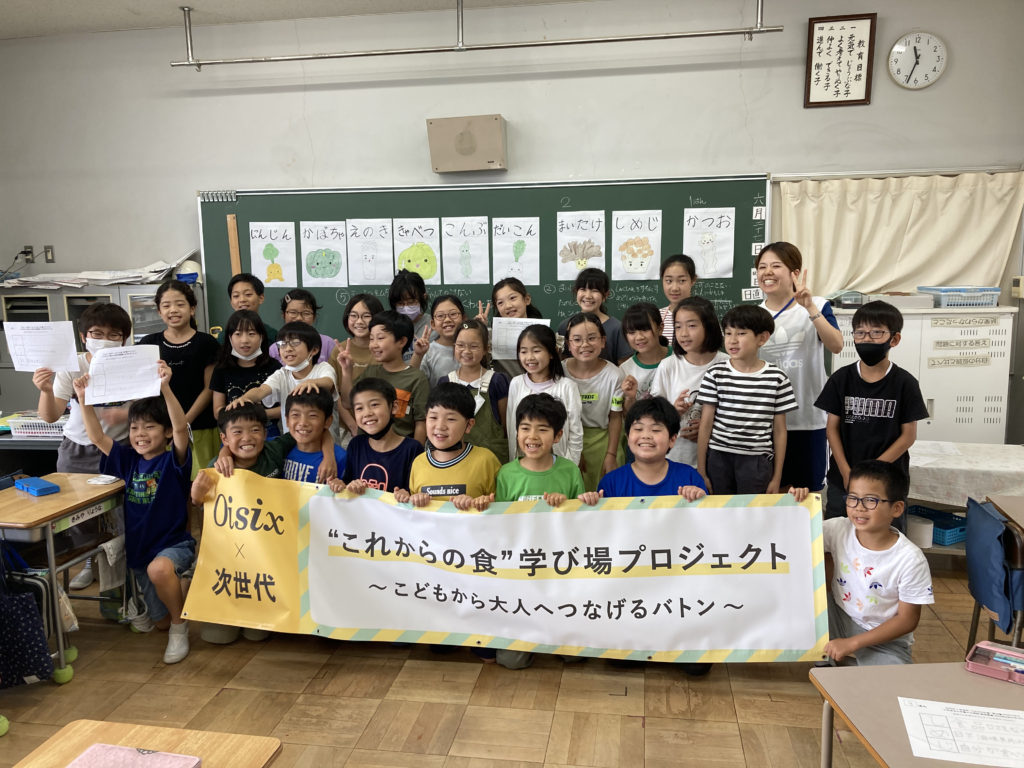
Held in 2023: special class with Odaira Sixth Elementary School
Since our founding, we have supported the nonprofit organization “Table for Two,” where we in developed countries share a meal with children in developing countries. By posting photos of onigiri, we are supporting “Onigiri Action,” which delivers meals to children in Africa and Asia. Also, in December 2021, we began “We Support Family,” a food support project for destitute families with children, with focus on single parents. The arrangement is that our company collects food ingredients we receive from aid companies, match based on needs, and deliver to organizations that provide food and livelihood assistance. Until now we had been providing food relief to free meal sites for children, but we found that we are able to provide more effective assistance with this newfound system.
Expectations for Hiroshima
Hiroshima has many visitors from Europe, the US and Australia. Additionally, I believe that as the city that represents peace, it exists in a special place where it can spread both peace and sustainability globally. When we eat delicious things, we smile. I believe that for a family’s dining table to be full of smiles is one step closer to peace. I would be grateful if we could together carry out initiatives tying Hiroshima to the world, and if we could involve Oisix Ra Daichi as well.
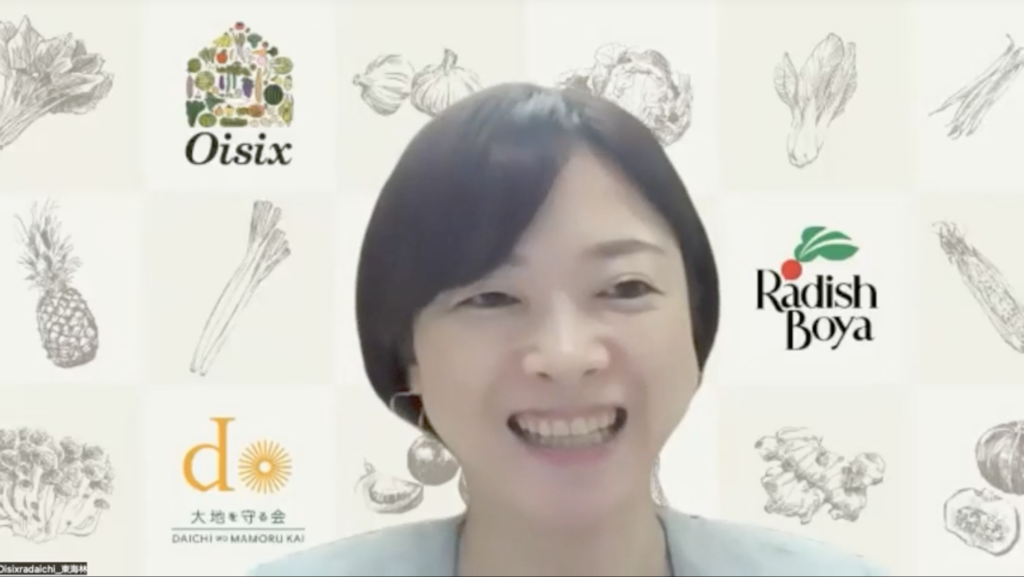
TOKAIRIN Sonoko
Chief, Green Strategy Room
Company Executive
Oisix Ra Daichi, Co., Ltd.
Tags associated with this article



